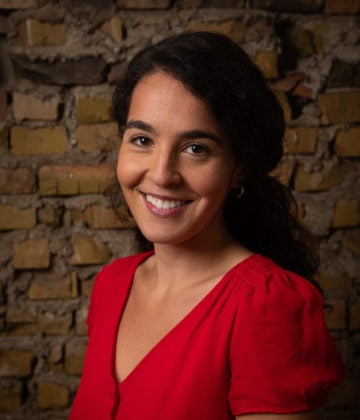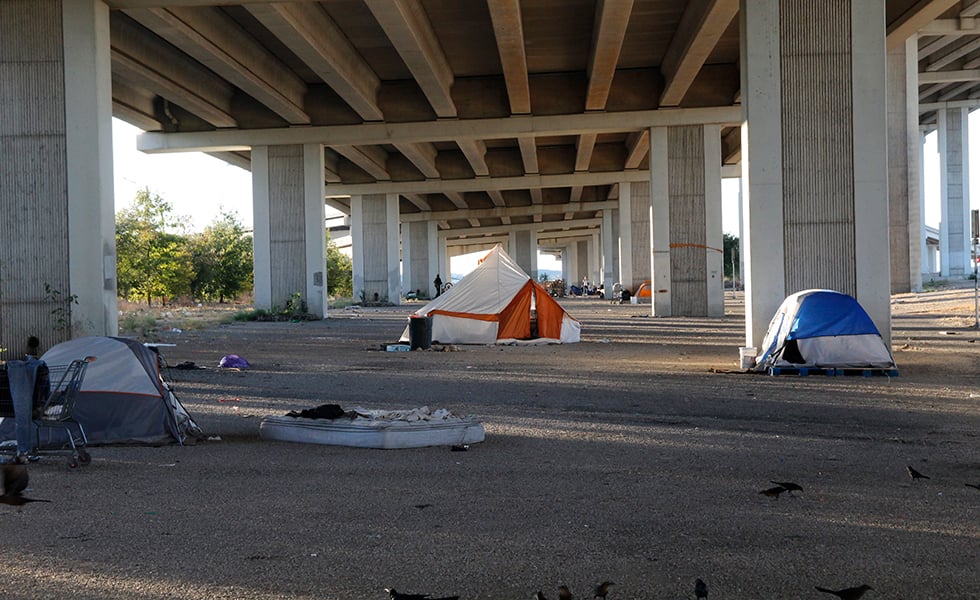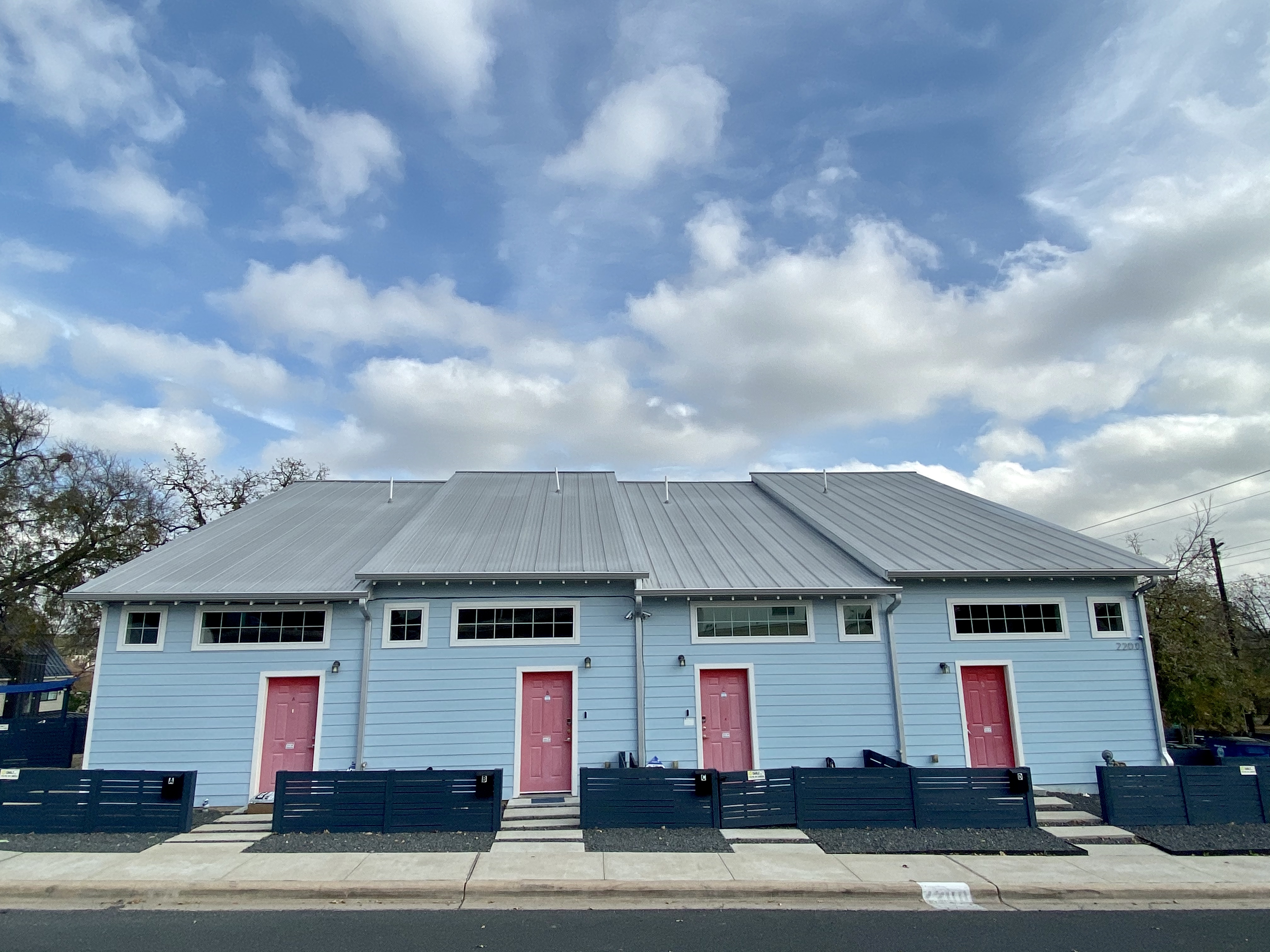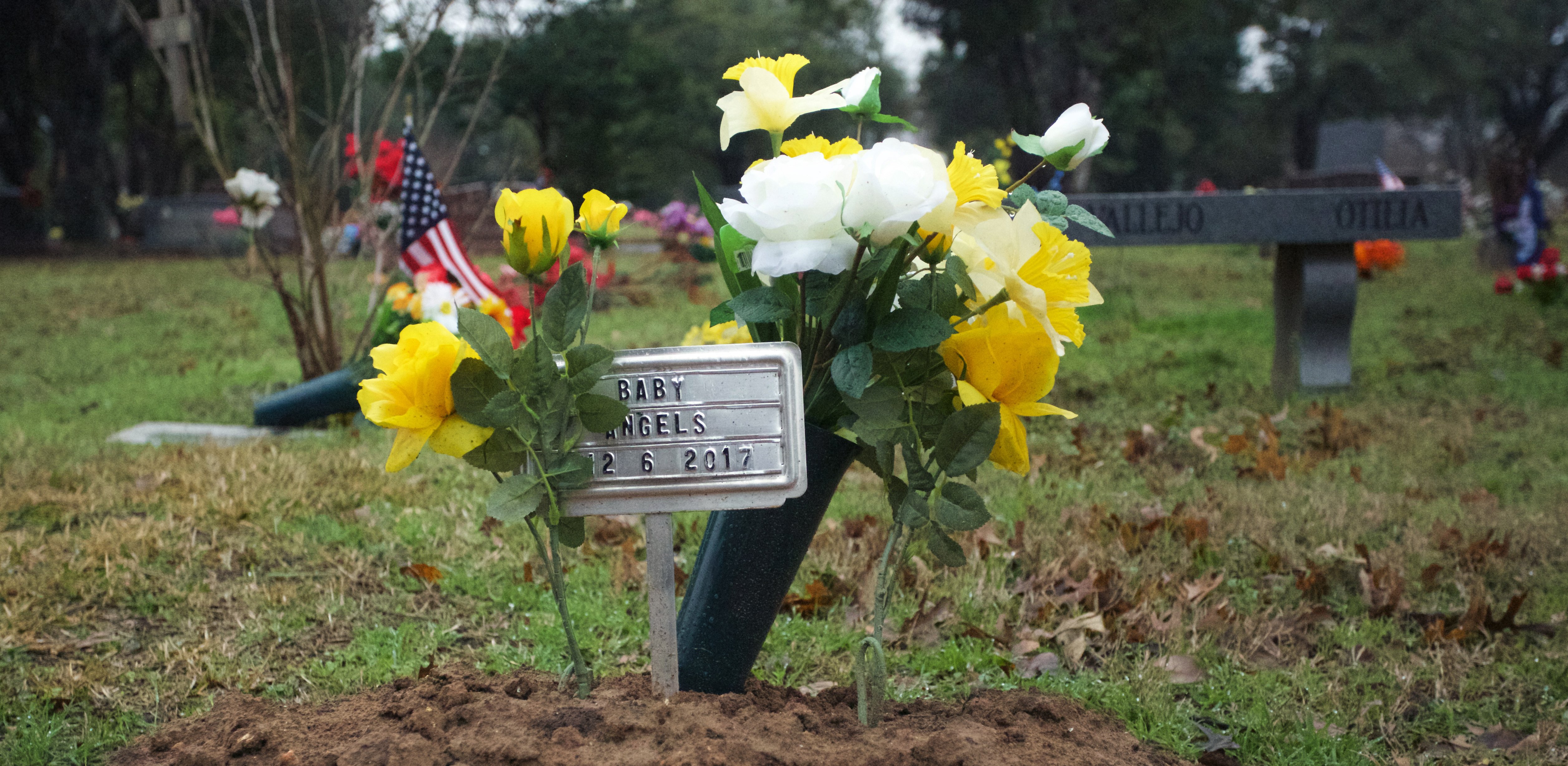
In June 2015, Blake Norton went to see her doctor for a routine prenatal check-up. She was 11 weeks pregnant — just before she’d begin to show — and she and her husband, Weston, were overjoyed. It would be their first child, very much a wanted pregnancy. But as her OB-GYN reviewed the ultrasound, the doctor frowned. There was no heartbeat. Norton’s body hadn’t signaled that it had stopped two weeks earlier — what’s known as a “missed miscarriage,” or “missed abortion.”
At her doctor’s suggestion, Norton, in shock, scheduled a procedure for the next day to remove the tissue from inside her uterus. Her doctor was affiliated with Seton Medical Center Austin, so Norton made an appointment there. The well-regarded hospital is the largest medical and surgical acute care center in Austin. Norton didn’t think anything of the fact that Seton is part of the world’s largest Catholic health system.
She calls what followed a “hazy nightmare.” Overwhelmed with grief, Norton waited in the lobby for hours and filled out paperwork. Finally, a nurse guided her into an exam room to change, and put an IV in her arm. She was about to be wheeled into surgery when she was handed one last form to sign. Confused, Norton scanned the document, quickly realizing that she was being asked to consent to the burial of the fetal remains. She could choose between two options: Seton would bury the remains in a shared grave, or Norton could arrange for a “private burial” at her own expense.
“The way this was done didn’t leave me with any sense of choice or empowerment or ownership over my experience, my narrative, my body.”
Could she opt out of having a burial? Norton asked. The nurse shook her head, and sent a social worker to speak with her. “I don’t understand, why do I not have a choice?” Norton asked, increasingly upset. What had been a medical procedure suddenly felt like a religious rite, compounding the grief she was only beginning to process. The social worker reiterated that she could choose between the two burial options. Norton elected to leave it to Seton and opted not to be notified when the burial occurred. Where the form required her to specify her relationship to the remains, Norton said she had no choice but to write “mother.”
“At that point, my only alternative would have been to disconnect the IVs and walk out and have to figure out how to deal with the missed miscarriage some other way,” she said.
Only later did Norton make sense of her experience that day. “The way this was done didn’t leave me with any sense of choice or empowerment or ownership over my experience, my narrative, my body,” she said. “It felt incredibly violating.”
Quietly, for more than 10 years, Seton has required the burial of all fetal remains after miscarriages. It’s widely known that Seton, which follows the ethical and religious directives of the Catholic Church, doesn’t perform abortions or offer contraceptives. But its policy on miscarriages is a secret even to some nurses and doctors who work at the hospital. Seton declined to give the Observer a copy of the policy, but a doctor who practices at the hospital provided one. “As a catholic institution, the Seton Healthcare Family policy is for all loss of life to be given a proper burial,” it reads.
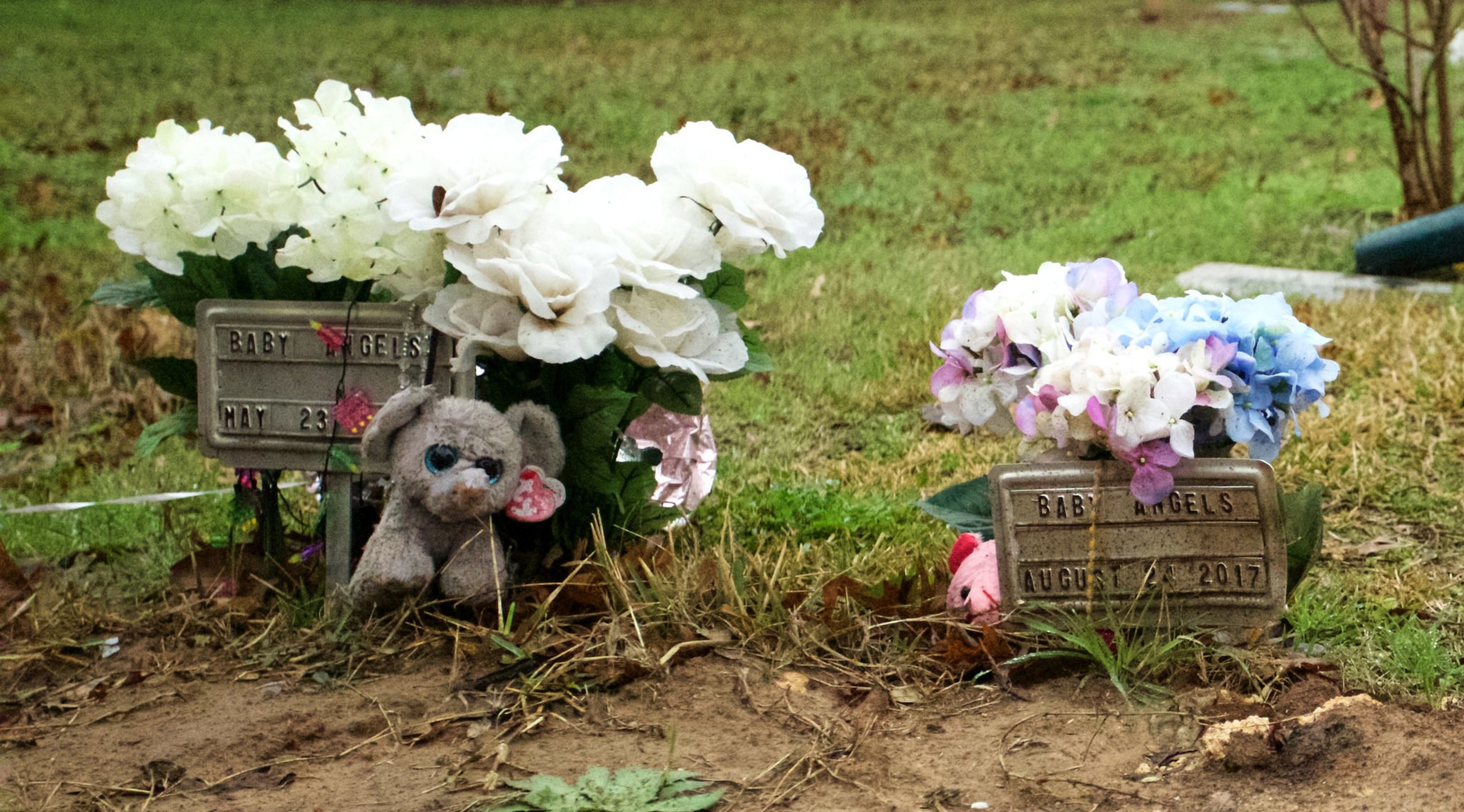
Adrienne Lallo, a Seton spokesperson, defended the hospital’s policy as respectful, and she questioned whether there was any alternative to burial.
“What would happen normally?” Lallo asked. “What would people like us to do, other than offer free burial?”
In fact, Seton’s policy is highly unusual. Typically, medical facilities treat such remains like other medical waste; they are incinerated and sent to a sanitary landfill. Under Texas law, families may take possession of the fetal remains and arrange a burial if they choose.
Lallo stressed that women do have a choice in the matter — they can elect to have a private burial. “If people don’t want the remains buried in a Catholic cemetery, they can take responsibility for handling the remains. If they don’t take responsibility for that, it’s taken care of by the health care system,” she said. “It’s important to emphasize that we’re trying to do the right thing, by taking care of folks mainly who are disconsolate, and already dealing with a lot.”
A few hours after her surgery, Norton decided to do something that few women who miscarry do — share her experience. “A normally private person, I feel compelled to speak out loud about my loss,” she wrote in a Facebook post. “I was angry because I am expected to carry a triple burden: the burden of fertility; the burden of pregnancy itself; and perhaps most of all, the burden of silence if a pregnancy is lost. Part of my healing is to lay down that burden and not grieve alone.” But she wasn’t ready to grieve publicly about her experience at Seton; she feared not everyone would understand why it was so upsetting.
“If people don’t want the remains buried in a Catholic cemetery, they can take responsibility for handling the remains.”
Instead, she did what many do when they are distraught: She turned to her mother, Donna Howard, who happens to be a nurse, a Democratic state representative from Austin and one of the fiercest advocates for women’s health at the Texas Legislature.
Today, Norton has decided to share her story publicly for the first time, in part because of a fight that Howard lost at the Legislature last year. In 2017, Republican state lawmakers passed a controversial law mandating the burial or cremation of all fetal remains of less than 20 weeks gestation after abortions and miscarriages that occur at medical facilities. (The state already required burial or cremation of fetal remains over 20 weeks.) Norton’s story opens a window into how Texas’ new law, now tied up in the court system, would affect women whose pregnancies are terminated, by choice or not. She fears that her experience could become routine, if the law were to go into effect.
“I hadn’t had an opportunity to figure out for myself how I wanted to think about the pregnancy or the miscarriage,” Norton said recently, crying, at the Austin townhouse where she has a therapy practice. Howard sat in an armchair across from her, hearing parts of her daughter’s account for the first time. “I had to do all that in the moment as some kind of bureaucratic step in this process, but nobody took into account the fact that I’m a human being having this experience.”
Howard, who has served in the Legislature for 12 years, was surprised she had never heard of the Seton policy. “My visceral response to all this as mama bear was one of rage. I was so mad about what she had to go through,” Howard told the Observer. “So I talked to a lot of different people within the leadership system of Austin … trying to find out what actually was going on, whether they can get away with doing this and whether we can change it.” The answer she got was disappointing: “Apparently they do have the ability to impose these religious directives on patients.”
Howard reached out to Amy Young, the chair of women’s health at Dell Medical School at the University of Texas at Austin, for help. At the time, the university was in the process of combining forces with Seton to open Dell Seton Medical Center, a teaching hospital affiliated with the medical school.
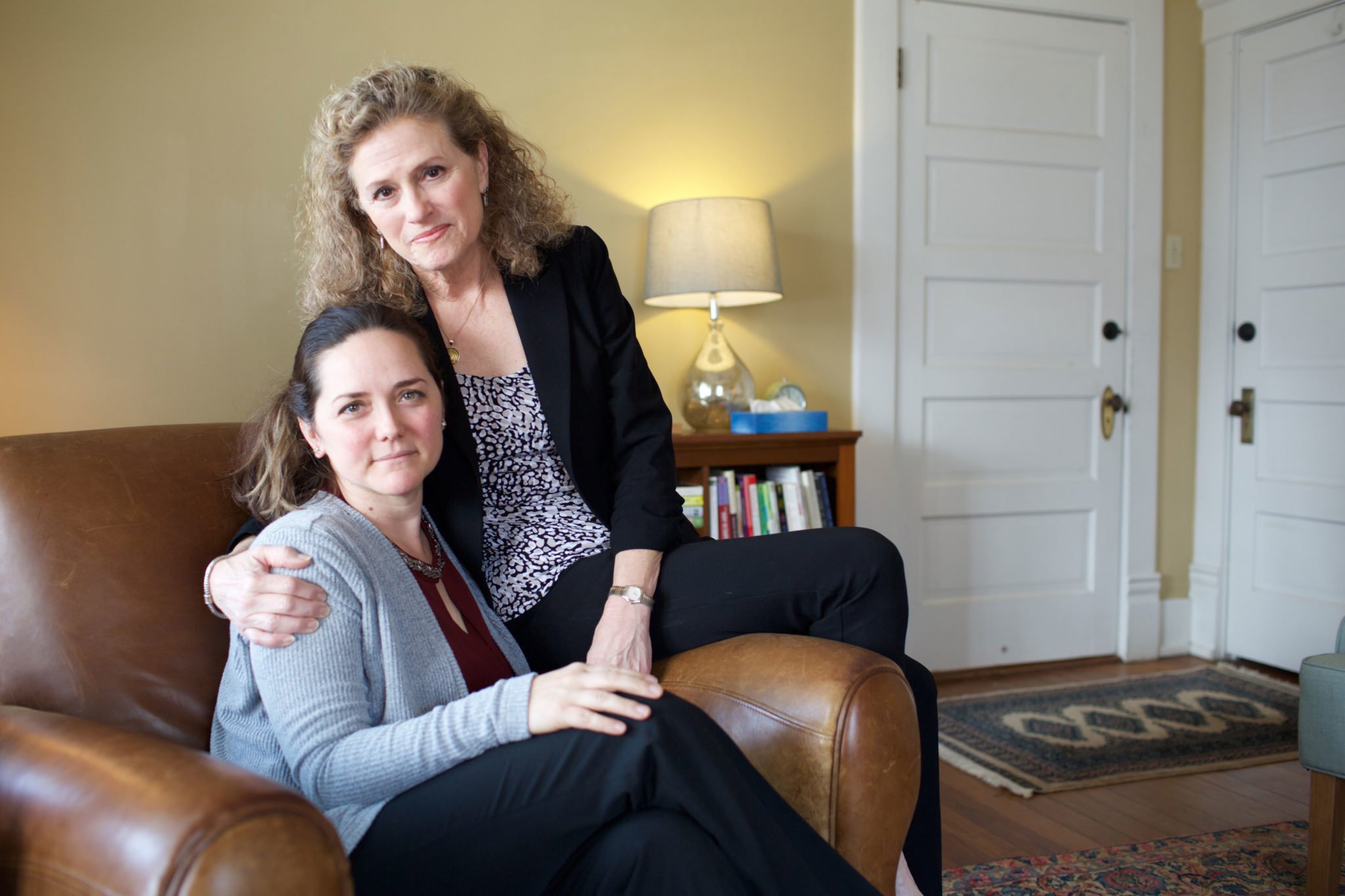
Norton’s case was the first that Young, new to the job, had heard about Seton’s fetal burial policy. Howard’s call prompted Young to work internally to change how Seton approaches patients. She succeeded in convincing hospital administrators to move the presentation of the waiver from before to after the surgery. Theoretically, women would feel less pressure to consent to a burial after the procedure.
But Seton confirmed that if a woman refuses to sign the waiver, the hospital will eventually bury the remains anyway. Sometimes the patient is “not emotionally ready to make a decision,” Lallo said, so a chaplain from the hospital will follow up later. “If they don’t make a decision even after we follow up, we’ll proceed with a respectful burial. Because that’s the way we are comfortable caring for the remains.”
Some doctors who oppose the policy say they warn patients ahead of time. “I don’t think most patients consider this. In general it’s very upsetting,” said Diana Weihs, an Austin OB-GYN who was previously chief of the obstetrics and gynecology section of Seton Medical Center and served on Seton’s ethics commission in the late ’90s and early 2000s. Weihs opened her women’s health practice in 1985 with Karen Swenson, who formerly served as chief of staff at Seton Medical Center Austin and president of the medical staff at Seton Family of Hospitals. Both doctors refer patients elsewhere for surgery following miscarriages whenever possible, because of the distress they say the burial policy causes their patients.
“My visceral response to all this as mama bear was one of rage. I was so mad about what she had to go through.”
Seton’s definition of “perinatal loss specimens” is so broad that it includes remains from pregnancies that were just a few days along. “Look at this,” Weihs says, leafing through a copy of the Seton policy. “Unidentifiable fetus or products of conception,” she reads. “You still have to do this! Oh my God, it is kooky.”
Of particular concern to some doctors at Seton is that mandating fetal burial violates the religious beliefs of patients. Swenson tells the story of one of her patients, a Muslim woman, who was about to have surgery at Seton following a miscarriage. Presented with the burial waiver, she put the procedure on hold while she waited for her imam to grant permission for the remains to be buried in a Catholic cemetery.
“There are crosses everywhere” at Seton, Swenson told the Observer. But most patients “think they’re in a health care facility, and that the religious part is the practice of medicine in a compassionate and caring way, not the following of religious and ethical directives of the Catholic Church.”
While Howard worked backchannels to change Seton’s policy, the Texas Health and Human Services Commission (HHSC), unbeknownst to her, was preparing a new rule that would have forced fetal burial for all miscarriages and abortions in medical facilities across the state. In July 2016, just days after the U.S. Supreme Court struck down major provisions of Texas’ sweeping anti-abortion law, House Bill 2, the agency quietly published the new requirements. The move was widely seen as a rapid-fire attempt to open a new front in Texas’ battle over abortion rights.
Howard had been involved in many fights over women’s health, but this time it was particularly personal. Taken aback by the sudden proposal, she sent a letter to the health commissioner, Charles Smith. “Despite my close association with reproductive health issues at the Capitol, I was unaware that this topic was being discussed by [HHSC], nor was I alerted to the matter by the agency, as has seemingly been the courtesy in the past,” she wrote. Though HHSC agreed to hold a public hearing, it didn’t back off the proposed rules.
In January 2017, a federal judge in Austin blocked the rules from going into effect, agreeing with reproductive rights advocates that they were politically motivated. U.S. District Judge Sam Sparks chided the state for writing new anti-abortion restrictions “before the ink on the Supreme Court’s opinion in Whole Woman’s Health was dry.”
Meanwhile, Republicans in the Legislature had already filed legislation to mandate fetal burial or cremation, citing “respect for the life of the unborn” and referencing outdated descriptions of remains being “ground up” and “flushed down the sewer system.”
In the final days of the 2017 session, Howard and other Democrats fought the legislation for hours on the House floor. They pointed to a 2015 law that requires hospitals to release fetal remains to families for burial if they choose. This new bill would take away the choice for everyone else, they argued.
“I don’t think most patients consider this. In general it’s very upsetting.”
After other moderating measures failed, Democrats attempted to win conservatives over with an amendment to add an exemption for those with sincerely held religious beliefs that conflict with the burial requirement. Howard invoked Norton’s story. “I want you to know that my daughter … already devastated by her miscarriage, was retraumatized by this coercion of how her provider chose — not how my daughter chose, how the provider chose — to dispose of the fetal remains.” The amendment failed by a wide margin.
Howard, surrounded by female lawmakers, began to cry while speaking on the floor shortly before the bill was passed. “I’m sorry,” she said as colleagues spoke over her, prompting a call for order. “This is a very difficult day.”
On and off the House floor, Howard has tried to sway her colleagues against the mandate by sharing her daughter’s experience. In private conversations with lawmakers, her attempts to strike a compromise have also been fruitless. “I don’t know, the whole thing is just…” Howard shook her head. “There was just no reasoning with the debate that occurred. And it’s unnecessary, it’s intrusive, and Blake’s experience exemplifies why that’s the case.”
In January, a federal judge blocked the law pending a trial set for this summer, ruling that the fetal burial requirement “may be a pretext for restricting abortion.”
For Norton, the choice to not be told when the burial happened was the only thing she could control. “It was at least the one piece where I didn’t have to participate any further in this coercive procedure,” she told the Observer in January. “Because I chose not to be notified of what happened after that, the hospital’s involvement in my story ends there.”
On a rainy afternoon in late February, I visit Assumption Cemetery, a Catholic cemetery in South Austin where, I’ve heard, Seton buries fetal remains. It’s quiet except for the whoosh of cars on the highway just beyond the entrance gate, and a bulldozer pushing past a muddy row of graves.
In a tan office near a small chapel, I ask a woman at the front desk where the miscarried babies from Seton are buried.
“What’s the mother’s name?” she asks.
I hesitate. “Blake Norton.”
She looks up Norton’s name on a computer and explains that Seton provides the cemetery with a list of mothers’ names whenever the hospital transfers the remains. Every few months, Seton’s pathology lab sends a set of remains to Assumption, where they’re buried together in a grave and blessed by a chaplain from the hospital. She hands me a photocopied sketch of the grounds, as well as a folded piece of paper on which she’s written “baby angels” and a numerical identifier for the gravesite.
“It’s unnecessary, it’s intrusive, and Blake’s experience exemplifies why that’s the case.”
A man, an employee of the cemetery, guides me on a golf cart to a row of flat headstones and points to one marking the group grave where the remains of Norton’s pregnancy are buried. “You are our sunshine, our only sunshine,” the headstone reads, below a date — August 12, 2015, nearly two months after Norton’s miscarriage. An image of the Virgin Mary is etched into the stone.
A small wooden cross, painted white and inscribed with “Bless this baby boy,” hangs from a metal sign staked into the ground near one grave. On another sign, there’s a stuffed elephant and a string of tiny pink and green lights in the shape of candles, with “Happy Birthday” in plastic block letters. You can bring flowers, the man tells me, but no vases.
“Baby Angels” is inscribed on each headstone, and some have additional messages: “Our baby angels, always in our hearts” and “A life forever changes the world.” The most recent grave, the earth still loosely piled, is dated December 6, 2017.
Two days after my visit, I meet Norton on a Saturday morning at the YMCA where her son Dashiell, born a year after her miscarriage, is in daycare. Norton, just out of a gym class, is sipping coffee in her exercise clothes. I offer to share as much as she wants to hear about what I’ve learned, and she asks for the full story. I tell her about the cemetery, how her name is linked to the grave. How anyone can walk into the cemetery office, give Norton’s name and be directed to the site.
“Are you fucking kidding me? … I didn’t consent to this,” she says quietly.
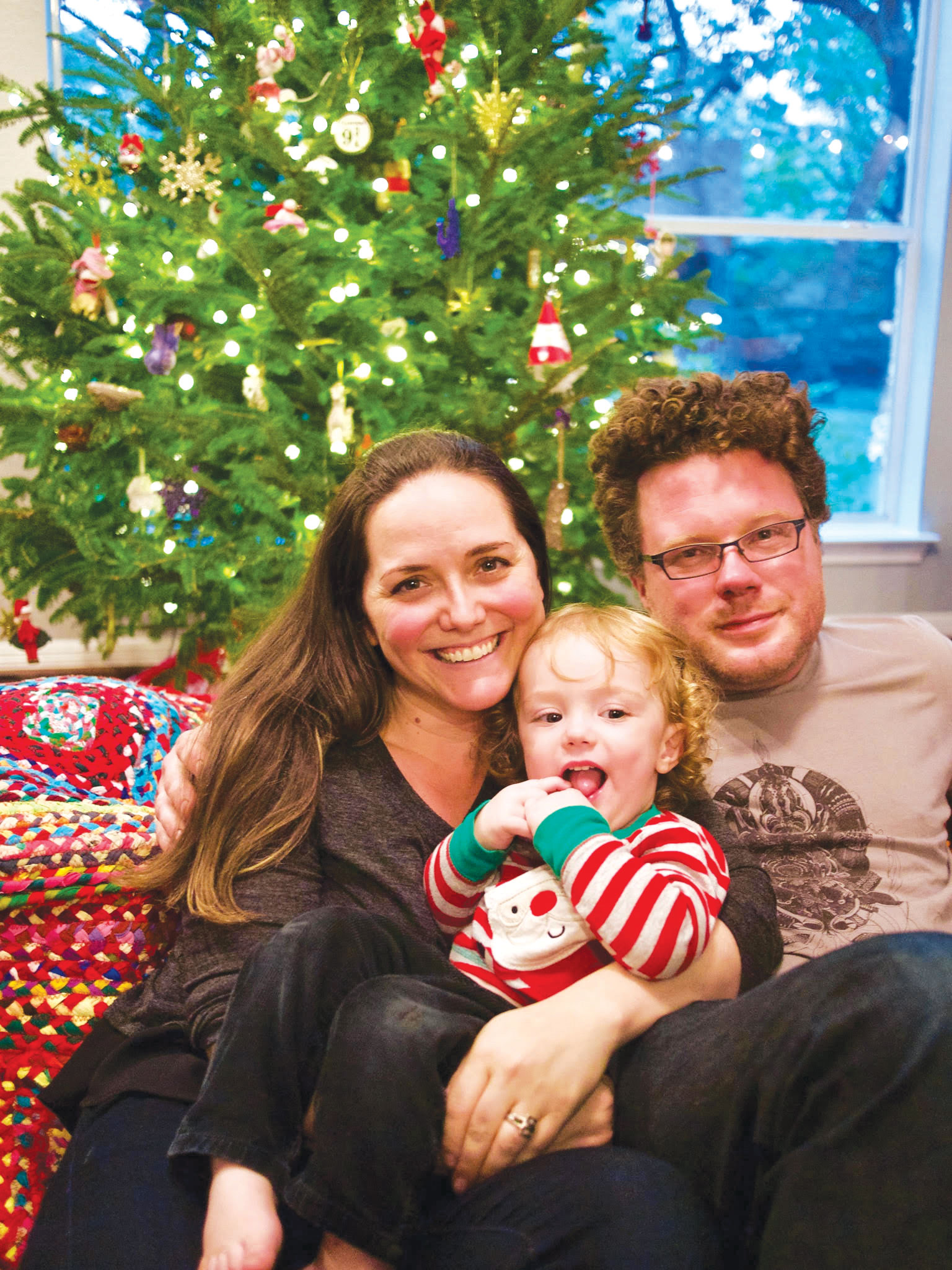
When I asked Lallo why Seton sends the names to the cemetery, she said that “seems strange.” “I don’t believe under HIPAA [the Health Insurance Portability and Accountability Act] that we can send the names, unless they decide that they want to go ahead with the burial and want to know where they’re placed,” she said, referencing the U.S. law that protects the privacy of medical information.
Lallo called back shortly afterward to say she had “stepped in it” and “given misinformation.” She explained that Seton does send all the names to the cemetery, because most patients want to follow up with the remains at the site. “I checked into that, it’s not [a HIPAA violation],” she said.
Asked about the release of Norton’s name, Deborah Hiser, a senior counsel at Husch Blackwell who specializes in health care privacy, said, “At the very least, it seems like a privacy violation to me.”
She added: “Unless there is something requiring the hospital to release the names to the cemetery, and the cemetery to release them, then they have to get parental permission.”
Norton told me several times that her story is “not unique or special.” That’s not to downplay its importance, she says, but to recognize her privilege. “The only reason I’m getting to tell you my story is that I’m my mom’s daughter,” she said. “It’s one story and one example of the ways in which these kinds of regulations are punishing and dehumanizing women, particularly women of color, and particularly women who don’t have access to financial resources. I had a lot of resources and privilege, and even with all that, I felt completely voiceless and disempowered.”
